But first a look back: On 29 November 2019, Professor Stefanie Kroker offered the first MasterClass of the Cluster of Excellence QuantumFrontiers to get students excited about research. It was a complete success. Both the physics course at Braunschweig’s Wilhelm-Gymnasium and the researchers, as well as the teachers, were enthusiastic. When the physics teacher involved from back then, Dirk Bielenberg, accepted a position at the Turkish school Erkek Lisesi, he also took his enthusiasm for the MasterClasses with him. And why shouldn’t the Turkish pupils also enjoy a MasterClass?
Back to the present, Professor Stefanie Kroker, Liam Shelling Neto and Mika Gaedtke are packing Michelson interferometers to send them to the Bosporus. In four weeks, they want to use them to show Turkish twelfth graders that their school lessons are indeed close to the current cutting-edge research of the Cluster of Excellence QuantumFrontiers. With the interferometers, they can track the smallest changes in the length of laser beams. This is the basis for the detection of gravitational waves. To be on the safe side, the researchers prefer to give the measuring instruments a clear head start so that they actually arrive on time. When the small scientific delegation from Braunschweig landed in Istanbul, however, they first had to turn the MasterClass upside down. The interferometers got stuck at customs and thus within their own national borders.
From quantum technology to Python
In Istanbul, an impressive school campus with an even more impressive view awaits the researchers. For many in Germany, this sight might look quite familiar: The school was transformed into a police headquarters for a German TV series. Inside, three times twenty young people interested in physics are waiting for their MasterClass. A four-hour intensive programme starts with an introduction to the world of photonics, which focuses on the individual particles of light – photons. For this, the researchers picked up the students from their lessons on interferometry and explained to them how, for example, you can operate a quantum computer with customised light.
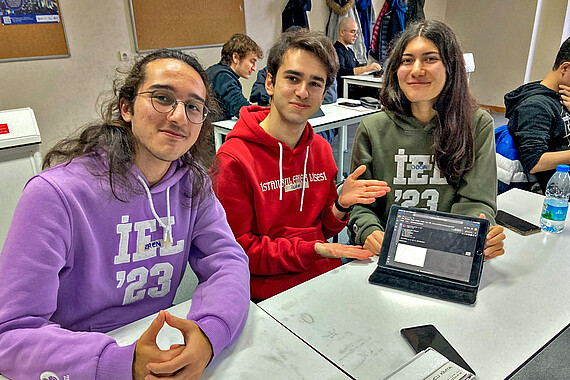
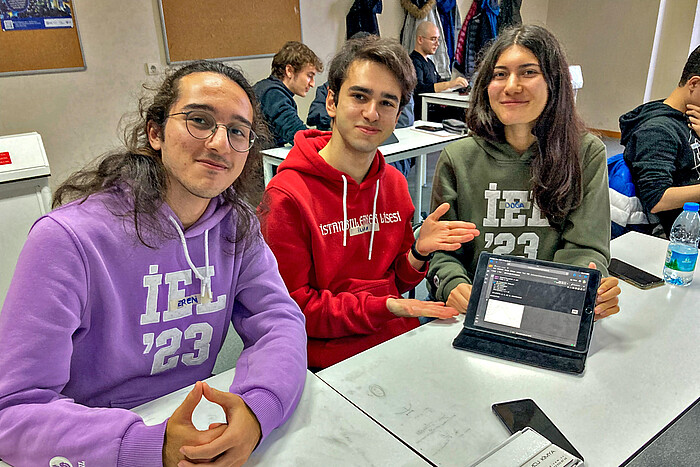
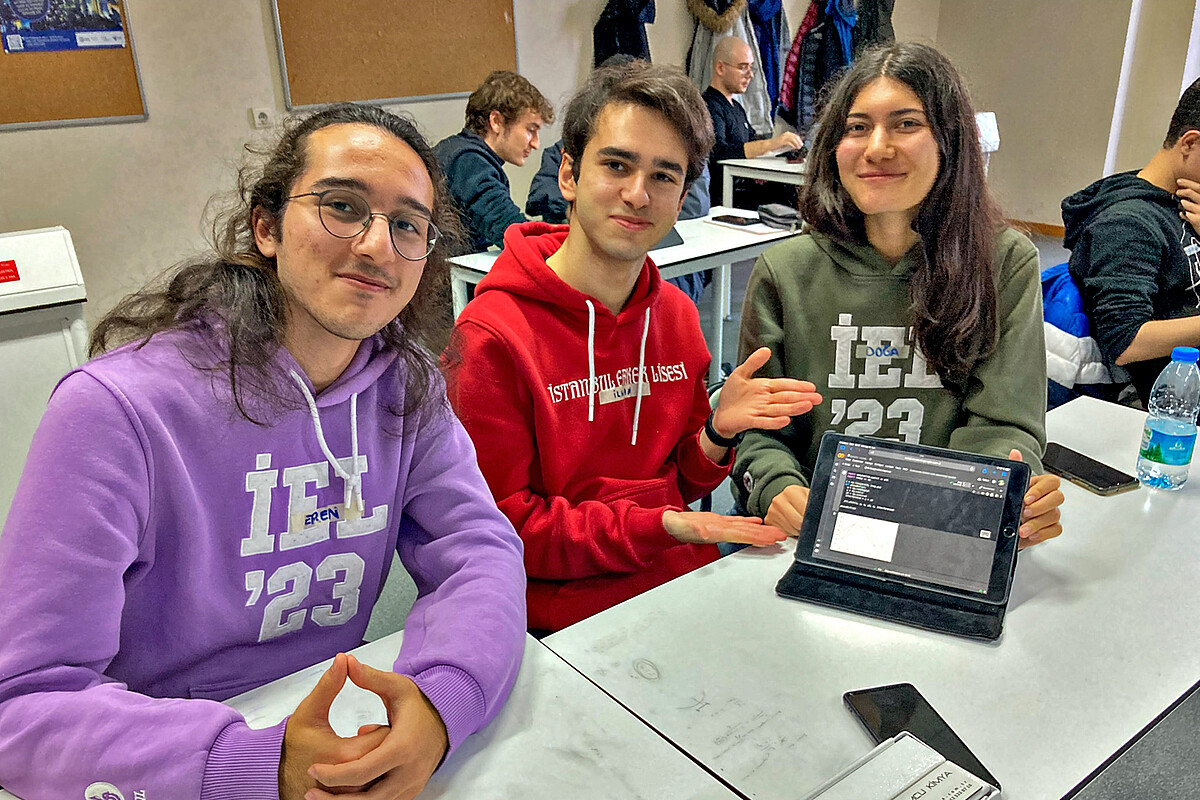 ©
MasterClasses/TU Braunschweig
©
MasterClasses/TU Braunschweig
The experimental part of the MasterClass became a practical introduction to the Python programming language. What seems somewhat unphysical at first glance is, at second glance, a very good bridge to entering the quantum world. Not only does physics research make versatile use of Python, the entire spectrum of topics is at the intersection of numerous disciplines such as electrical engineering, physics and indeed computer science.
The conclusion of the MasterClass was correspondingly diverse. After an impulse lecture about studying in Germany, Braunschweig students answered many questions from the classroom. This showed the high motivation of the students to deepen their newly acquired knowledge at a German university.
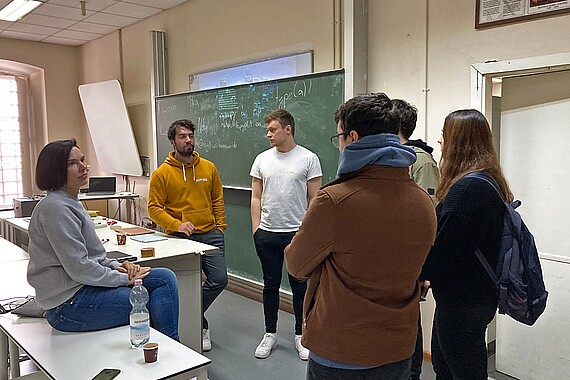
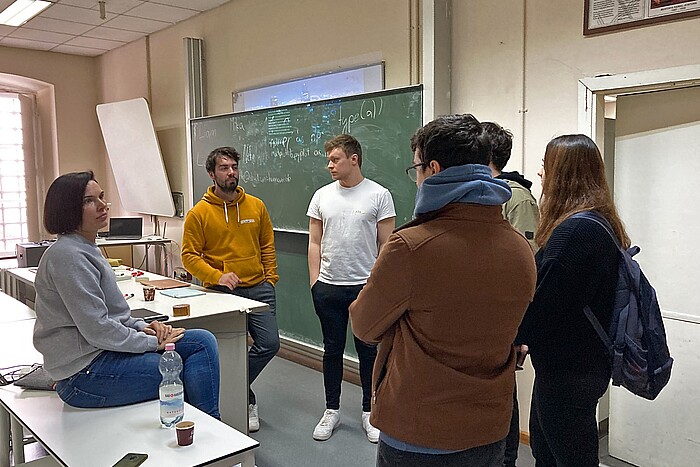
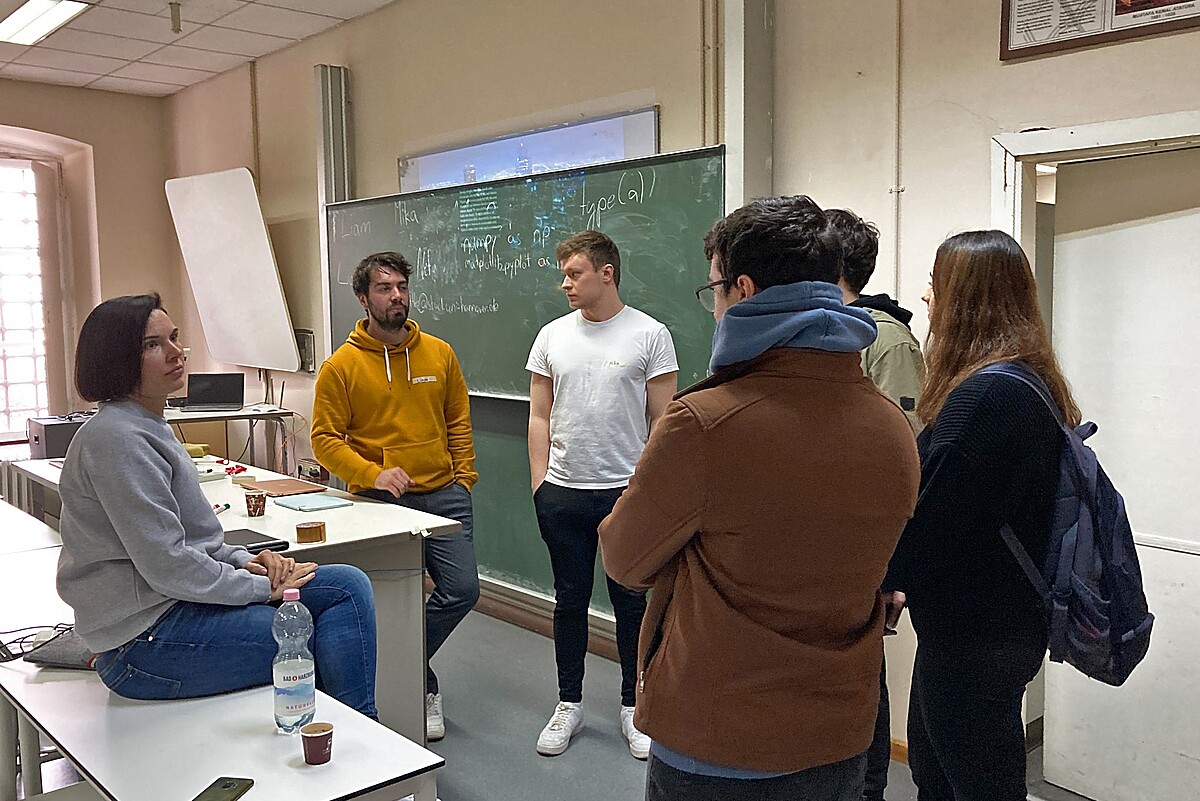 ©
MasterClasses/TU Braunschweig
©
MasterClasses/TU Braunschweig









